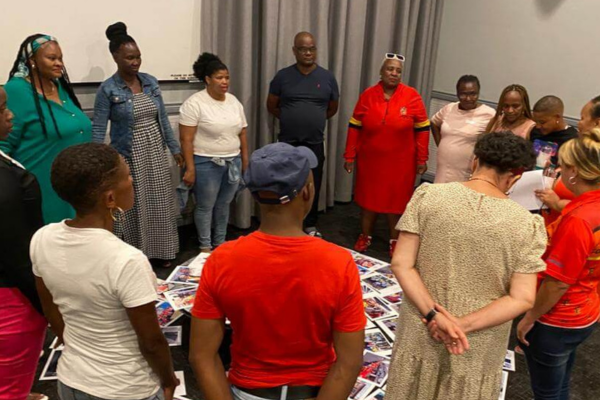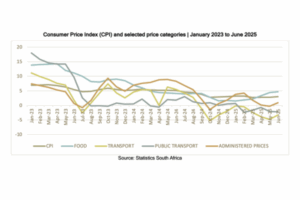LRS insights on addressing gender-based violence in the world of work.
GBV is a world of work issue
Women report feeling unsafe at work and when travelling to and from work across all sectors in South Africa. Women are more vulnerable to violence and harassment in insecure and precarious employment because they lack legal protection and bargaining power. Incidents of violence and harassment are often unreported for fear of further victimisation and dismissal.
The term Gender Based Violence (GBV) covers many different forms of violence, ranging from bullying and psychological abuse to rape and sexual assault. The similarity between these different forms of violence is that they are used to maintain the social power of men over women in society.
By recognising that GBV is a world of work issue, we take into account the experiences of violence and harassment that a woman may experience both in her workplace and in other places, such as on public transport to and from work. As working hours increase, insecurity and risk of being assaulted or violated increase as more women leave their homes after dark and return late at night.
Domestic violence in South Africa is alarming and can seriously affect a woman’s ability to work. In the past, this would have been seen as a personal issue, unrelated to her role at work.
The ILO’s Violence and Harassment Convention 190 (C190), has challenged this notion, arguing that domestic violence affects employment, productivity and health and safety in the world of work. This means that domestic violence follows a woman into work, whether it’s the psychological impact of the violence or the actual physical threat of a partner stalking her at work.
South Africa has ratified C190 and adopted a code of good practice to deal with harassment and violence in the workplace.
GBV significantly affects women’s physical and mental health and undermines their overall well-being and confidence in the workplace. The ILO Convention reinforces the view that sexual harassment and violence are important occupational safety and health issues.
A world of work free of GBV
As a Labour Support Organisation, the LRS recognises that GBV is multi-faceted and embedded in personal, situational and social-cultural contexts and that strategies for changing individual behaviour and mindsets of everyone involved in the world of work need to work alongside shifts in workplace practices and policies.
The South African workplace can be a micro-system of the broader society where violence is pervasive but the workplace also has the potential for being a space free of GBV. For this to be possible, there needs to be a conscious intervention of all role players involved. Trade unions are important role players in the world of work. We see our role as supporting unions to develop effective strategies for preventing and addressing GBV in the world of work.
LRS initiatives to address GBV in the world of work
Over the past five years, we have supported unions in the domestic work, public health and education, garment, retail and transport sectors to experiment with different approaches to preventing and ending GBV in their sectors.
1. Domestic workers' experience of GBV
Domestic workers, the majority of whom are women are especially vulnerable to violence as they work and sometimes live in the private homes of their employers, isolating them from their own families and support systems. Like many other women workers in informal and precarious work situations, domestic work is mostly undervalued and domestic workers report suffering frequent verbal abuse, mistreatment and sexual harassment.
In 2018, we supported a group of domestic worker leaders from the South African Domestic Service and Allied Workers Unions (SADSAWU) to engage in a short participatory research process to understand their members’ experiences of GBV in the context of the ’employer’s home’ as a workplace. Domestic workers’ leaders conducted the research with their counterparts in Gauteng and KwaZulu Natal and analysed the research findings together. The research revealed cases of abuse, humiliation, undermining, sexual assault and rape. Yet many of the workers who participated in the storytelling focus groups believe it is best to remain silent for fear of being victimised and losing their jobs.
For SADSAWU, the research revealed that the female employer would often ”take out her frustration and anger on us” – a situation in which the employer elevates her own status as a woman by undermining and degrading the status of the domestic worker. This would be done through abusive language or demeaning comments, resulting in what one of the domestic worker leaders described as a ”crushing of my self-esteem”. In some cases, domestic workers were sexually abused by male members of the family and chose to remain silent, believing that they would not be believed if they raised the issue with the employer and would be dismissed if they tried to raise the issue outside the employer’s home.
The participatory research process did not produce a single strategy to address the challenge of GBV in the domestic workers’ world of work. However, provided an opportunity for domestic workers and their leaders to reflect on and name their daily experiences of GBV, an important starting point for developing prevention strategies.
2. A pilot social action initiative to reduce violence in a health institution in Gauteng
An ILO working paper, Gender-based Violence in the World of Work (Kruz and Clinger, 2011), reports that although healthcare workers are eight times more likely to have experienced the threat of violence than workers in manufacturing, almost 70% of incidents among nurses go unreported.
Between 2015 and 2017, the Health & Other Services Personnel Trade Union of South Africa (HOSPERSA) partnered with LRS on a social action initiative at the Meadowlands Clinic in Soweto in response to the high levels of violence against their members in health facilities. They were concerned not only for the safety of their members, but also for their ability to provide quality services in stressful and sometimes traumatic conditions. In our initial discussions, worker leaders spoke of feeling ‘terrorised’ by communities angry about the lack of health services and what they perceived as a lack of care on the part of health workers. Stories of workers fearing that their car tyres would be slashed or that they would be attacked if they left the clinic at lunchtime created a very sombre atmosphere.
The aim of the pilot was to deepen the unions’ understanding of the causes of violence and to experiment with different actions to reduce the level of violence in an institution, while valuing the essential nature of care work and the people involved in it. From the start of the initiative it was clear that there was no “quick fix” or single strategy. Interventions would need to occur at many levels, including policy and advocacy. Using a multi-stakeholder approach, the initiative experimented with individual and collective actions to reduce violence and change perceptions about the value of care work and health workers. The Meadowlands initiative created a space where dialogue was encouraged, stakeholders felt ‘safe’ and the emotional and psychological impact of violence was acknowledged.
The stakeholders involved in the Meadowlands initiative were more adept at policy and advocacy interventions, but less so at processes focused on changing individual behaviour and social norms. The group or committed stakeholder representatives became an incubator for experiments in reducing violence in the clinic. The incubation process was carefully facilitated and continued over many sessions during the three years of the initiative.
The Meadowlands initiative was an example of concerned individuals and groups experimenting with actions that would do what we saw during the COVID 19 pandemic, i.e. give value to the ”life-giving” work of healthcare workers. This strategy is significant in that it was used to reduce violence in the clinic by drawing a direct link between the devaluation of the reproductive work of health workers and the increasing levels of violence against the mostly women workforce in the health system.
Read:
3. Responding to GBV in and around the school as a workplace
For education trade unions and their members, the issue of gender-based violence in and around schools and other educational settings is important if educators are to be able to provide quality services to learners while working in a safe environment. Everyone in schools – educators, learners and support personnel – can be perpetrators and victims of School-Related Gender-Based Violence (SRGBV). SRGBV not only undermines the quality of education, but also creates unsafe and discriminatory workplaces for employees.
From 2016 to 2021, LRS partnered with the transnational network Gender at Work, Global Union, Education International and the UN Girls Education Initiative to support education unions across Africa to experiment with strategies for ending SRGBV. The Education Unions Take Action to End SRGBV programme put teachers, education personnel and education unions at the forefront of efforts to end SRGBV.
Throughout the programme, union members experimented with different approaches, starting with a process of empowering their members by coming together and telling their stories of SRGBV, helping to break the silence around the issue. Members were elected to lead the union’s efforts to eliminate SRGBV at a formal, structural level. Embedding the commitment to ending SRGBV in policy frameworks became a key priority as unions saw the process of proposing, revising and adopting policy frameworks as an opportunity to engage their members. Once the commitment to work on SRGBV had been reaffirmed, the process of formalising it in policy at different levels created lasting legitimacy for the issue in the union, which was important for taking further action to reduce the levels of SRGBV.
Read: What will it take to support education unions to end school-related gender-based violence?
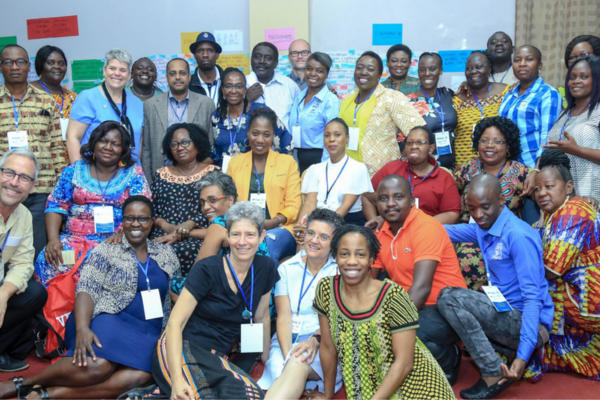
4. A Participatory Action Research Program to identify strategies for addressing GBV in the Garment manufacturing sector and the supply chain
Sexual harassment is a common occurrence in the women-dominated garment manufacturing sector internationally, according to a 2019 International Labour Organization (ILO) report on sexual harassment in the garment industry. In the South African context, women in clothing manufacturing speak of a ‘culture of GBV’ where women are intimidated, demeaned and harassed in the workplace and where domestic violence is prevalent in the home.
The retail sector, part of the clothing value chain, is dominated by women and characterised by insecurity and precarity. With this growing precarity has come long hours and increased shift work. As a result of later working hours, many women are vulnerable and do not feel safe on public transport. There are reports of increased customer abuse and sexual assault.
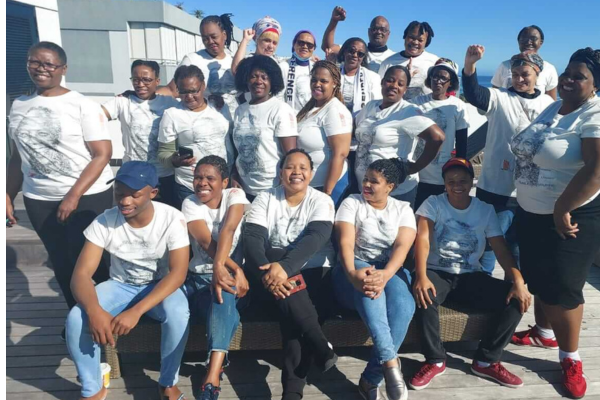
In partnership with COSATU and its affiliates, the South African Clothing and Textile Workers Union (SACTWU) and the South African Commercial Catering and Allied Workers Union (SACCAWU), LRS, together with COSATU’s research arm, the National Labour and Economic Development Institute (NALEDI), facilitated a participatory action research process to identify strategies for preventing and addressing GBV and harassment in the world of work. The idea of the research was to give a voice to women workers and other marginalised workers as experts on their own experiences of gender-based violence and harassment (GBVH) in the workplace and as owners of the decision-making processes involved in preventing and addressing GBVH in the workplace.
The research focused on what the researchers called ‘Do No Harm’ when engaging their colleagues, to ensure that the worker-researchers were not re-traumatised by their involvement in the research process. Many of the worker researchers and the workers they interviewed are victims of GBV and the research had the potential to trigger traumatising thoughts and feelings. The unions were careful to provide safe spaces for support and counselling throughout the research process.
5. Creating workplaces free of homophobic and transphobic violence
Discussions on C190 and the Code of Good Practice have opened up important spaces for the LRS to advance the rights of LGBTQ+ people to a safe and inclusive world of work. C190 highlights the importance of addressing violence against marginalised groups. The prejudice and discrimination faced by members of the LGBTQ+ community puts them at increased risk of threat and violence. The LRS work includes building partnerships with trade unions to create awareness in the union and the workplace, and supporting trade unions to include policy and bargaining demands and strategies that can put in place measures to support and protect LGBTQ+ workers.
Read: Creating safe and inclusive workplaces where LGBT+ workers freely claim and exercise their rights.
UNTU inclusion strategy creates meaningful change
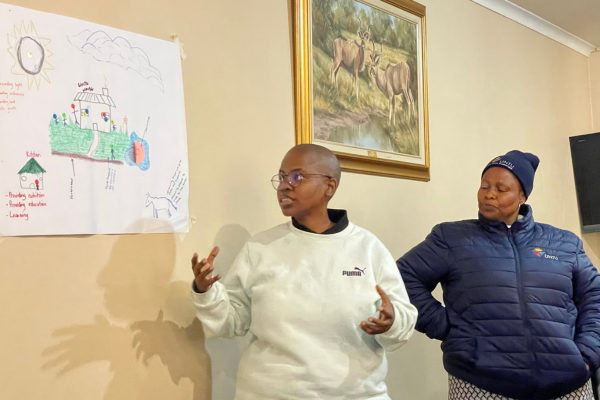
The United National Transport Union (UNTU), a union with a majority of male members organising in the transport sector, has taken the lead in working to create a safe environment for LGBTQ+ workers. At an LRS-UNTU workshop in May this year, one of the UNTU members reflected on the changes she had seen in the union since they developed a partnership with LRS:
"UNTU has become a safer space, thanks to the awareness raised in our meetings with LRS. Recently, during a training session, I faced prejudice as an LGBTI+ member, which unfortunately is not new to me. A colleague became aware of my experience through the processes with LRS. Another LGBTQ worker approached me, expressing that my activism in the union empowered him to be himself."
UNTU member
"We recognise the importance of educating all workers, not just union representatives. UNTU will incorporate the knowledge from the LRS learning intervention into our training manuals."
Mandlakhe Zondo, Deputy General Secretary of UNTU
Read:
- Worker leaders and activists propel UNTU’s inclusion agenda
- Taking Action on Violence and Harassment against LGBTQI+ Workers (Facilitator Guide)
- Taking Action on Violence and Harassment against LGBTQI+ Workers (Participant Handbook)
- Workplace rights belong to everyone: Negotiating for inclusivity and against discrimination
6. Working together with communities to end gender-based violence
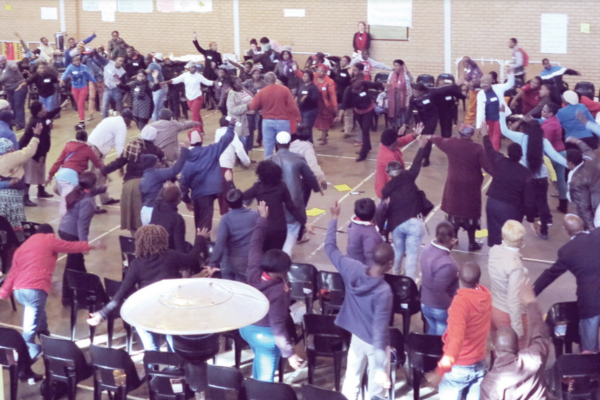
Our work to eliminate Gender-Based Violence (GBV) in communities centres on Letsema, an intervention for changing entrenched social norms in the Vaal Triangle. Letsema integrates feminist leadership with principles of organisation and community development in a Gender Action Learning (GAL) programme. Letsema has greatly influenced gender attitudes and behaviours in the Vaal.
Read: Working together with communities to end gender-based violence


